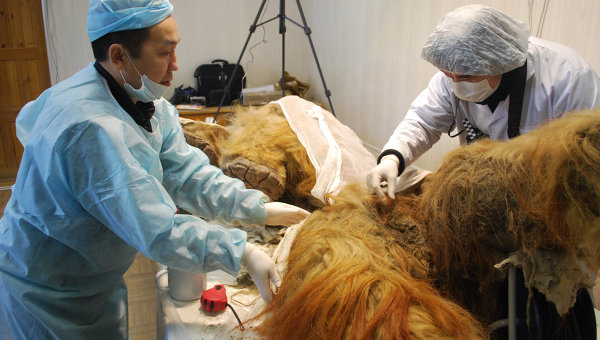
A woolly mammoth frozen in the Siberian
permafrost for 10,000 years could be on his way ba ck after Russian academics
signed a deal with a controversial South Korean scientist to clone the
prehistoric animal, a researcher said on Wednesday.
ck after Russian academics
signed a deal with a controversial South Korean scientist to clone the
prehistoric animal, a researcher said on Wednesday.
"We intend to carry out somatic cloning
by implanting the genetic material of a mammoth that lived several thousand
years ago into the egg of a modern female elephant," a spokesman for the
Insitute of Applied Ecology in Siberia's Yakutsk told RIA Novosti.
"The egg will then be placed into the
womb of the elephant, who will bear the foetus for 22 months before hopefully
giving birth to a live baby mammoth," he said.
The ten-year-old baby mammoth was discovered
on the coast of the Laptev sea last year and is thought to have died 10,000
years ago.
Mammoths are an extinct member of the elephant
family.
Vasily Vasiliev, deputy head of North-Eastern
Federal University of the Sakha Republic, forged the pact with South Korea's
Hwang Woo-Suk on Tuesday, Yonhap news agency reported.
Hwang Woo-Suk, the leader of Sooam Biotech
Research Foundation, was hailed as a national hero in South Korea and was
awarded the title "supreme scientist" until some of his research on
human embryos was declared bogus in 2006.
He received a suspended jail term in 2009 for
embezzlement and accepting millions of dollars in grants under false pretences.
Hwang created the world's first dog clone, an
Afghan hound puppy, in 2005. In October last year, he claimed to have cloned
coyotes for the first time.
Russian scientists are already working with
Japan's Kinki University on reviving the extinct creature.

 Previous page
Previous page Back to top
Back to top







